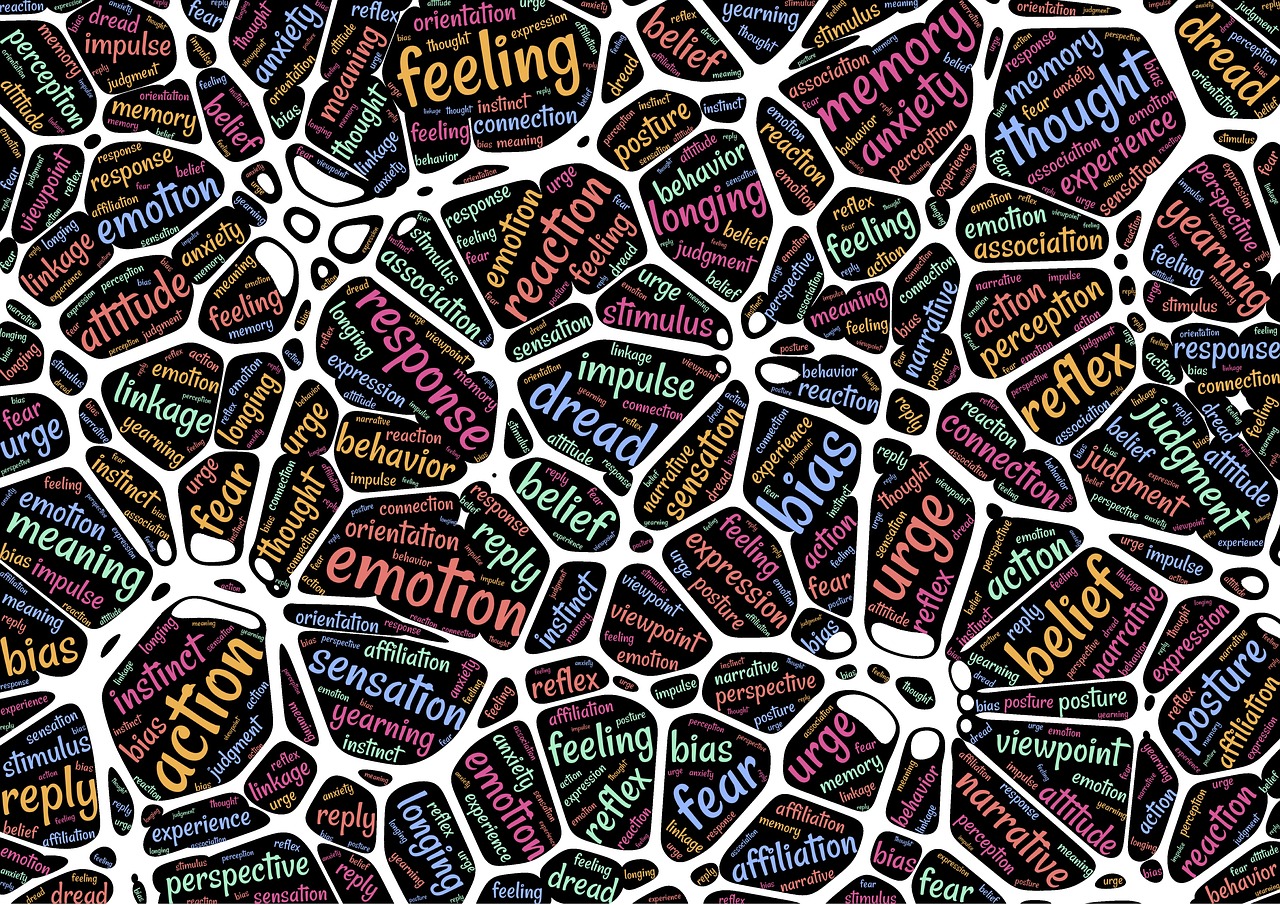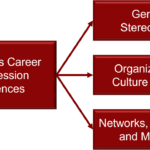
by admin | Mar 29, 2012 | Uncategorized
A career reputation is created over time as a result of attitude and behavior. Be intentional about yours!
~~~~~~~~~~~~~~~~~~~~~~~~~~~~~~~~~~~~~~~~~~~~~~~~~~~~~~~~~~~~~~~~~~~~~~~~
Reputation: It's Your Career Brand
Reputation is our identity in the opinion of others. In the business world, reputation is considered by many to be our most important asset, so shaping and developing how we wish to be perceived becomes a wise career strategy.
A reputation can be formed based on facts plus people's direct experience of being in relationship with you. It can also be formed as a loosely held opinion based on gossip and innuendo. The latter can be of considerable risk from a career perspective.
Knowing and controlling how you are perceived by others contributes to your ability to be strategic about your career success.
The concept of character is different from reputation, but the former can be an important influence, and provide an essential foundation for the latter. Individuals who live from strong core vaues also tend to build positive reputations. An honourable reputation can be developed through intentional and consistent, exemplary behavior,for example:
* Being respectful
* Being trustworthy
* Being genuine
* Being honest
* Being kind
Building a distinguished reputation may take the better part of your career-life, and yet it can be undermined, sometimes even destroyed, in a matter of minutes as a result of a bad decision or a thoughtless action.
What is your reputation? If you want an answer to that question, try polling a group of people who know you well, i.e. a group of selected friends, family, colleagues,subordinates, supervisors and clients or customers.
Ask each person to state the first two or three descriptors that come to mind when they think of you. Then examine all of the responses to find similar language or themes. These poll results should give you a good sense of how you are perceived by the people in your personal and professional life. If you hear anything that gives you cause for concern, ask that person's advice on actions you could take
to improve. This task takes courage and the willingness to receive feedback.
For further information on personal branding and career strategies, access this website Self-Marketing http://r20.rs6.net/tn.jsp?et=1109639205992&s=471&e=001z3ceenwhb2Qszp2dbi…
Take good care,
Kathleen

by admin | Feb 15, 2012 | Uncategorized
"Validation of your truth is the essence of respect." Jenna Ryan
~~~~~~~~~~~~~~~~~~~~~~~~~~~~~~~~~~~~~~~~~~~~~~~~~~~~~~~~~~~~~~~~~~~~~~~~
The Importance of Validation
Validation is an important part of being in relationship with Self and others. When we validate someone we are acknowledging that person's unique identity. Our external validation can also affirm positive feelings the person holds about him/herself. Understanding validation, and knowing how to give and receive it, is an essential career competency.
Human beings are social animals. The importance of belonging to a group has been critical for our survival as a species. Having someone else know and understand me contributes to my sense of belonging within the group, allowing me to "fit in." It also contributes to my identity and value as a person.
We need feedback from others in order to learn how to become an accepted member of our social group. The validation process begins within the family system, where ideally parents both protect and sustain the child's physical and emotional well-being.
Through adolescence, young adulthood, and the rest of life's stages, we continue to learn to self-validate, which is to recognize and acknowledge our internal experiences. And we continue to benefit from external validation and feedback.
In addition to the family system, our work environment provides an excellent opportunity for feedback and validation. While I may know when I'm doing a good job and experience a high degree of satisfaction from doing so, hearing the importance it holds for others, can be extremely meaningful.
Ideas for self-validation:
* Be able to talk with ease and comfort about your talents, knowledge, skills and experience
* Create your own recognition file
* Ask three friends to name your strengths
* Keep a Learner's Journal
* Don't wait for a performance review-do your own informal 360
* Update your resume yearly
Ideas for validating others:
* Voice your appreciation for someone whenever you feel it; the perfect time is the present
* Know what's important to someone and comment or ask about it
* Offer your help before being asked
* Notice another's unique approach to a task or a project
* Comment on another's creativity and/or innovation
* Never be threatened by someone else's competency-celebrate it!
I would love to hear about your validation experiences.
Take good care,
Kathleen

by admin | Dec 13, 2011 | Uncategorized
"We don't see things as they are, we see them as we are." ~Anais Nin
~~~~~~~~~~~~~~~~~~~~~~~~~~~~~~~~~~~~~~~~~~~~~~~~~~~~~~~~~~~~~~~~~~~~~~~
Christmas Blessing, Not Stressing
For some people this time of year brings back beautiful memories of celebrations with loved ones, special foods, and happy events. For others, it triggers a deep sense of loneliness or grief even in the midst of festivities and splendor. Regardless of happy memories or sad emotional responses, most women also experience higher levels of stress as we prepare for the holiday season.
The perspective we choose to take toward the people, events and situations showing up in our daily lives, plays a significant role in how we experience them. This time of year we can either work ourselves into an exhausted state by cramming more and more commitments and obligations into a finite piece of time, or we can choose to reflect on our blessings and spend our holiday season in ways that will bring us more joy and ease.
In addition to accepting situations and people as they are, here are some ways to reduce your stress and enjoy the festive season:
1. Apply the K.I.S.S. principle (keep it simple sister). Create a list containing each task you think you need to complete in the next 10-14 days. The list can have two headings: Employment-Related Tasks and Home/Family Tasks. Then carefully examine each item and decide how you can either simplify, delegate, delay or drop it entirely. Be ruthless!
2. De-clutter. It's a fact that clutter adds stress to our daily lives. It seems to cloud our thinking as well as our space. Reduce unnecessary clutter by gathering any items you don't need right now and boxing them up. Make a list of the contents and tape it on each box and then put them in storage. This will give you some breathing
space, make room for displaying holiday decorations and also help you get organized for the new year.
3. Look for ways to laugh and have fun. Consider your festive commitments. If you'd sooner have a root canal than attend a particular function, find a creative way to be unavailable. Life is short. Only do the fun stuff!
4. Make time for yourself. Book a massage, a pedicure or a facial. Go to a movie by yourself and eat your favorite junk food – you can work out later. Go for a walk in an outdoor green space or if it's too cold, take a book and sit on a bench in a beautiful setting like the Muttart Conservatory.
I hope you will find a tidbit or two here to help lower your stress levels over the next few weeks and that your Spirit will be filled with the Christmas message of Joy, Love and Hope.
Take good care,
Kathleen

by admin | Nov 4, 2011 | Uncategorized
A Zen master suggested that instead of saying, "Don't just sit there do something,"
we should say the opposite, "Don't just do something, sit there." Carl Honore, In Praise of Slow. 2004
~~~~~~~~~~~~~~~~~~~~~~~~~~~~~~~~~~~~~~~~~~~~~~~~~~~~~~~~~~~~~~~~~~~~~~~
Making a Difference
This article explores the concepts of being and doing in the context of a woman's desire to make a difference.
When I ask women to talk about their career aspirations, the most common response is a genuinely expressed need to make a difference. But when invited to describe what that means, the responses are often elusive.
Since doing commonly involves action, performance or execution, and being represents the nature or essence of a person, it's my premise that these two concepts sometimes conflict in a woman's career journey.
The business and economic sector provides a strong example of doing, since the overall goal of business is the production of goods or services involving action, performance and execution. The pressure to perform and produce economic results has probably never been greater than it is in today's fast-paced global environment, with both men and women working equally hard to achieve the desired results.
The fact is, however, that regardless of effort, women continue to be promoted more slowly and earn less money than men. [A recent article published by the Catalyst organization: The Myth of the Ideal Worker: Does Doing All the Right Things Really get Women Ahead? discusses why women's careers continue to lag behind men's].
Surely this "striving, striving, but never arriving" reality undermines how a woman perceives herself as making a difference through her achievements, in addition to discounting her personal identity.
Identity formation, or the defining of oneself, is a developmental stage in a person's life. There are many factors that help someone develop a sense of identity – things like name, heritage, family, philosophy, beliefs and so on. Culture also provides part of the framework as it includes the customs, practices, attitudes, and social norms of the society in which the person exists. Identity formation begins in adolescence and can continue to shift and be shaped through life experiences on into adulthood. In our culture, personal identity is often highly influenced through one's personal achievements and economic well-being.
One critical factor in the formation of personal identity is the work or career that an individual chooses to undertake. The developmental path toward a secure identity in adult roles can be highly complex for a woman aspiring to make a difference in both the traditional workplace and within her family unit. There are a myriad of responsibilities and relationships within each of these "worlds" in which a woman can be a catalyst for making a difference.
It is within this context that each woman must determine for herself who she is and exactly how she chooses to make a difference. In one woman's words: "I've learned that the clients or employers who expect you to get things done at any cost are not where I now choose to spend my time. That lesson was hard to learn. At this stage of my life, I'm putting a lot more energy into being with family and community than I used to."
Women seem to live in a conundrum; striving harder and harder to reduce the impact of being female. Nevertheless, whenever we compromise ourselves in order to fit in, we move further away from our essence and our real power to make a difference.
Believe in yourself and your ability to make a difference – you do and you will!
Take good care, Kathleen

by admin | Aug 25, 2011 | Uncategorized
"The brain constitutes about 3% of your body weight but it uses 20-25% of your body's energy." Robert Sapolsky, Stanford University
~~~~~~~~~~~~~~~~~~~~~~~~~~~~~~~~~~~~~~~~~~~~~~~~~~~~~~~~~~~~~~~~~~~~~~~
Understanding the Female Brain
Recent advances in neuroscience have shown that our brains are "plastic," an ability that makes it possible for us to continually learn from our experiences.
In her highly readable book The Female Brain (2006) Louanne Brizendine, M.D., neuropsychiatrist, describes her research that began as a means for empowering her female patients. Her book describes how the influence of female neurochemistry and hormones can be understood to support women in managing their personal, reproductive and occupational lives in the 21st century.
Dr. Brizendine explains that more than 99 percent of male and female genetic coding is exactly the same, but that the less than one percent variation influences every cell in our body.
While the male brain is larger by about 9 percent, contributing to what led scientists in the 19th century to believe that women had less mental capacity than men, we now know that men and women have the exact same number of brain cells. They are just more densely packed in the female brain. She also reminds us that while there are some important differences in the innate abilities of the sexes, there are no overall differences in IQ between males and females.
A few highlights from The Female Brain related to thinking, emotion and behavior in women:
1. The part of the brain that controls rational cognitive functions such as problem solving and decision making is larger in females (Anterior Cingulate Cortex).
2. The principal hub of memory formation in the brain is larger and more active in females (Hippocampus).
3. The testosterone marination for boys in utero shrinks the brain centres for communication, observation and emotion processing, whereas these centres for little girls are left intact.
4. The part of the brain that is responsible for executive functioning
including governing social control or taming emotions, matures faster in teens girls than boys by one to two years (Prefrontal Cortex).
5. The area of the brain that registers fear and triggers a rapid response to threatening stimuli (Amygdala) is smaller in females.
6. There is a biological reason females need social bonding and intimacy. Estrogen at the onset of puberty and for the rest of a woman's fertile life, increases dopamine and oxytocin in the brain. Dopamine is a neurochemical that stimulates the motivation and pleasure circuits in the brain and oxytocin is a neurohormone that triggers and is triggered by, intimacy. Connection and intimacy create a sense of pleasure and well-being.
According to Dr. Brezendine, differences in the structure of the female brain result in several unique aptitudes for women including verbal agility, the potential to connect deeply with others, a tremendous capacity to read faces and tone of voice for emotions and states of mind, and an instinctive ability to avoid or defuse conflict.
While Dr. Brizendine's depiction of how women's hormonal fluctations can result in unpredictable behavior and emotional volatility may seem like it supports sexual stereotyping, she proposes that not understanding the effects of hormonal cycles often leads to women blaming themselves. The book does not deny the influence of environment and culture, but rather emphasizes the persistent and real effects of biology throughout all stages of a woman's life.
Take good care,
Kathleen









